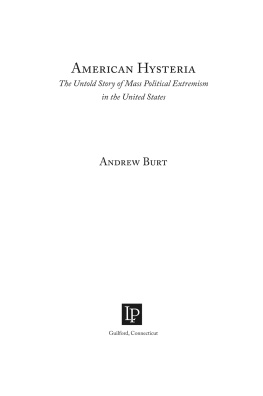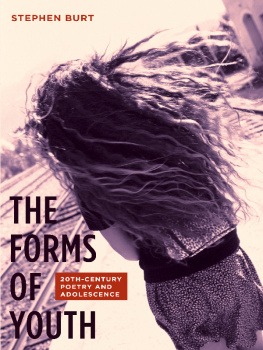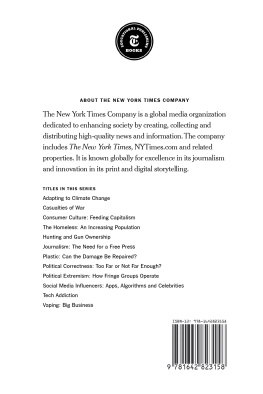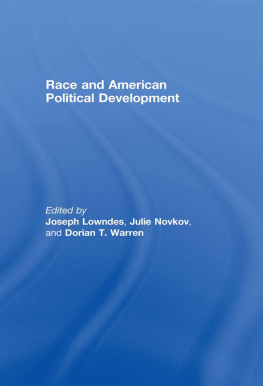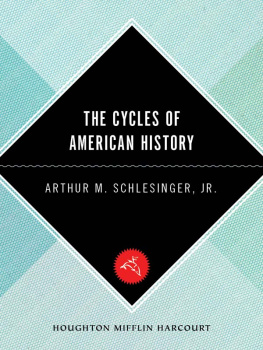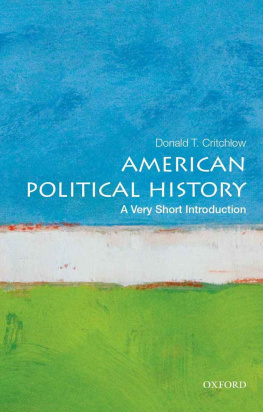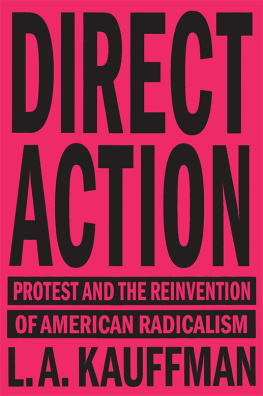What It Is... and What It Isnt
Something momentous occurred on the morning of December 15, 2008an event that was overlooked by the national press at the time and has gone largely unnoticed still. On that morning, a former Marine infantryman by the name of Kevin J. Murray filed a federal lawsuit in Michigan against the Treasury Department and the Federal Reserve, arguing that the government bailout of the insurance giant AIG violated the First Amendment of the Constitution. AIG was providing special types of financial products to Muslims that complied with the legal code of the Islamic religion, known as Sharia law. Now that AIG was funded by the government, Murray alleged, the government had violated the constitutionally mandated separation of church and state.
At the time, I was working as a reporter for US News & World Report, and the magnitude of the event wasnt immediately apparentto me or to anyone else. Murrays claim was soon dismissed, and just as quickly forgotten. But as I read more about the case in the weeks after he filed suit, I began to see that something much deeper was at work.
Murray hadnt initiated the lawsuit on his ownhe was aided by a network of conservatives on the far right, and chief among them was the Thomas More Law Center, a public interest law firm that filed the lawsuit on his behalf. Murrays lawyers clearly thought the suit was about much more than AIG alone. Make no mistake, declared Richard Thompson, the president and chief counsel for the center, there is an internal cultural jihad underway against our great nation, and I fear that many of our political leaders are unwittingly complicit in it. Others began to compare the lawsuit to a global fight against Islamic terrorism that was now being staged on two fronts. One was a violent struggle, which had been conducted overtly with hijacked planes and deadly roadside explosives, but the other battle was culturaland was being waged in secret. This cultural war, they warned, had only now just gotten under way.
In the months after Murray first filed his suit, claims about the hidden threat of Sharia law began to slowly gather steam, moving from the fringes of American political discourse closer to the center stage. In March of 2009, for example, Fox News host Glenn Beck accused Harold Koh, the dean of Yale Law School and the Obama Administrations nominee for the position of legal advisor to the Department of State, of supporting the rule of Sharia law over the US Constitution. But instead of dismissing these claims as outright absurd, others soon rallied to Becks cause. Prominent members of the GOP like Karl Rove and John Bolton, the former ambassador to the UN, began echoing versions of Becks accusations.
By the next year, Republicans in the Oklahoma legislature had introduced a measure to make the use of Sharia law illegal in the state. This is a war for the survival of America, Representative Rex Duncan, the politician behind the ballot measure, would say on national television. Its a cultural war, its a social war, its a war for the survival of our country. In the following weeks and months, the movement would expand even further, winning over hundreds of state legislators, tens of thousands of grassroots supporters, and even a handful of members of Congress (as we will see in chapter 6). At the time of this writing, voters in nearly one in five states in the union have elected to ban Sharia lawan astonishing feat for any political movement, little less one premised upon demonizing the worlds second-largest religion.
Was this nascent political movement a new type of phenomenon in American politics? Or did it channel something essential, something common to more than our era alone? How did these seemingly wild claimsvilifying a religion with more than 1.6 billion adherentsfit into historical context? With these questions in mind, I began to research the forgotten movements of our nations political historybeginning with the dawn of the Revolution, and spanning to the present dayonly to learn that there was much more to these accusations than meets the eye. Consider, for example, the following claim, from an 1835 volume written by Samuel F. B. Morse, the inventor of the single-wire telegraph, describing a Catholic conspiracy to overthrow the US government:
Foreign spies have clothed themselves in a religious dress, and so awe-struck are our journalists at its sacred texture, or so unable or unwilling to discern the difference between the man and his mask, that they start away in fear.
Or this claim, part of the 1892 platform of the Populist Party, focused on the widespread belief that American monetary policy was being set by an international syndicate of bankers:
A vast conspiracy against mankind has been organized on two continents, and it is rapidly taking possession of the world. If not met and overthrown at once it forebodes terrible social convulsions, the destruction of civilization, or the establishment of an absolute despotism.
Or this declaration from the 2010 bestselling book, The Grand Jihad, written by former federal prosecutor Andrew C. McCarthy, arguing that President Obama is in league with Islamic extremists, waging an ideological war against the United States from within:
A civilization fights to preserve itself or it dies. Has ours become so hollow, such a pale imitation of its former self? Do we lack the capacity even to speak of the evils arrayed against us? Have we become so cowardly that our censure is reserved for our saviors, not our pillagers? The conspirators are banking on it.
While any one of these statements could have been pronounced at the height of McCarthyism in the early 1950s, these quotations were uttered several decades apart. As Mark Twain is said to have put it, history may not repeat itself, but it sure does rhyme. And in each case, huge portions of the American public bought into these accusationsnot indefinitely, to be sure, but for a time.
A closer look at American history reveals that there is a marked trend underlying these claims. Every few decades, a striking political phenomenon emerges, based upon the fear that a secret network has infiltrated American society and threatens destruction from the inside. Even more fascinating is the fact that this type of movement is not relegated to the fringes of the political arenait routinely takes center stage. Wide swaths of the American public, its leaders, and its intellectuals buy into the conspiracy theory, ready to sacrifice whatever they mustbasic constitutional rights, for exampleto keep the internal enemy at bay. Stranger still is the fact that the history of this tendency remains largely unexplored, in both the academic literature and in the popular press.

